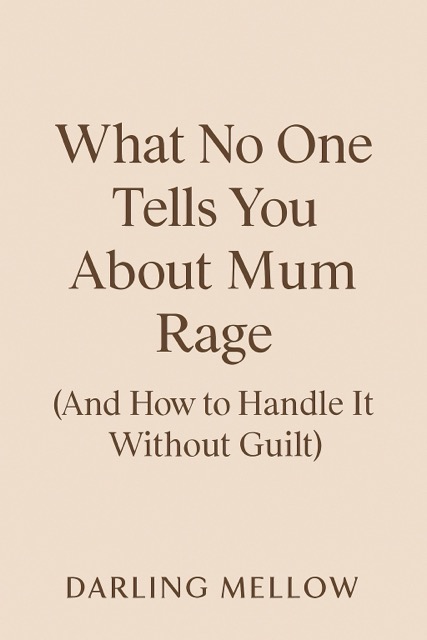What No One Tells You About Mum Rage (And How to Handle It Without Guilt)
Mum rage is a silent epidemic. This post explores what causes it, how to recognise it, and practical mum rage tips that actually help. You are not alone – and you are not a bad mum.
You adore your kids. But some days, something inside snaps. The constant noise. The mess. The never-ending demands. Suddenly, you are yelling, slamming a cupboard, or silently crying in the bathroom. Then comes the guilt.
This is not just “losing your temper.” This is mum rage. And it is far more common than people admit. Let us talk about it honestly – without shame, without judgement, and with solutions that work in the real world.
What Is Mum Rage?
Mum rage is not just anger. It is the result of emotional, physical, and mental overload. It often feels like an out-of-body experience – snapping, shouting, or reacting far more intensely than the situation calls for.
It can show up as shouting, crying, physical tension, or withdrawing completely. It can also feel frightening or confusing. Many mums describe it as a sense of being pushed over the edge, again and again.
Why Mums Experience Mum Rage
- The mental load: Constant multitasking, decision-making, and emotional labour wear you down.
- Overstimulation: Noise, clutter, touching, and demands build up until your nervous system cannot handle it.
- Sleep deprivation: Exhaustion leaves your body in survival mode, unable to regulate properly.
- Hormonal shifts: Postpartum, menstrual, and perimenopausal changes increase irritability and mood swings.
- Isolation: Lack of adult conversation or personal space intensifies feelings of being trapped.
- Pressure to be perfect: Social media, parenting advice, and judgement make mums feel like they must never lose it.
Signs You Are Experiencing Mum Rage
- Snapping over small things
- Clenched jaw or tight chest
- Yelling or slamming doors
- Feeling ashamed after reacting
- Thoughts like “I cannot do this anymore”
- Shutting down emotionally
10 Mum Rage Tips That Actually Help
- Notice early signs: Learn to spot your triggers before they build up. Keep a log or journal to track them.
- Use grounding tools: Try cold water on your wrists, deep breathing, a mantra, or stepping outside for air.
- Step away safely: Walk into another room or sit in the car for a moment. A short pause prevents escalation.
- Give your body a physical outlet: Dance, stretch, shake, or do ten jumping jacks to release tension.
- Create a “rage reset kit”: Include calming music, lavender oil, a stress ball, or a voice note from a supportive friend.
- Build in micro-breaks: Even two minutes alone can stop pressure from building. Use screens guilt-free if needed.
- Use non-shaming language: If you do shout, say “That was not okay. I am working on it.” Then move on.
- Ask for help: Message a friend. Call your mum. Book therapy. You are not supposed to carry all of it alone.
- Take guilt off the pedestal: Guilt is only useful if it leads to action, not punishment. Be kind to yourself.
- Connect with others: Talking about mum rage removes its power. Join a support group or follow honest parenting accounts.
You Are Not a Monster
Rage does not cancel out love. It means your nervous system is overloaded and screaming for relief. Saying sorry, showing repair, and moving on teaches your child that emotions are normal and repair is powerful. You are doing your best in a world that does not make it easy.
Helpful Resources and Support
- Peanut App – a safe space for mums to talk honestly
- Mind.org.uk – mental health support in the UK
- Every Mind Matters (NHS)
- @_darlingmellow – real talk, community and connection
Final Thoughts
Mum rage is more common than you think, and it does not make you unlovable or unsafe. You are navigating deep waters with strength you do not always feel. Breathe. Rest. Laugh. Share this with another mum who needs to hear it.
Share your experience in the comments or tag @_darlingmellow to join the conversation.


